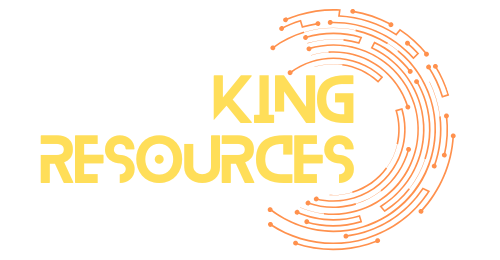Buying an investment property can feel like diving into a pool of opportunity—except the water’s a bit murky and you’re not quite sure if it’s shallow or deep. With the right approach, this leap can lead to financial freedom and a steady stream of passive income. But let’s face it, navigating the world of real estate can be as daunting as trying to assemble IKEA furniture without instructions.
Table of Contents
ToggleUnderstanding Investment Properties
Investment properties represent a viable path to financial growth and passive income. Delving into various types and evaluating their benefits and drawbacks proves essential for informed decisions.
Types of Investment Properties
Residential properties include single-family homes and multi-unit buildings. This category often appeals to new investors due to familiarity with residential leasing. Commercial properties, such as office buildings and retail spaces, offer higher income potential but demand more capital and market understanding. Industrial properties cater to warehousing and manufacturing, frequently providing long-term leases and stable returns. Lastly, rental vacation homes attract investors looking for seasonal income, combining personal use with investment opportunity.
Pros and Cons of Investing
Investing in real estate presents several advantages. It generates passive income and builds long-term wealth through appreciation. Tax benefits can also enhance overall returns. Diversification forms another advantage, reducing risk by spreading investments across multiple asset types. Challenges exist alongside these benefits. Property management can consume time and effort, often requiring professional assistance. Market fluctuations may adversely affect property values, leading to potential losses. Additionally, unexpected repair costs or vacancies can impact cash flow, underscoring the importance of conducting thorough due diligence.
Preparing for Purchase

Preparation plays a crucial role in successfully purchasing an investment property. Thorough planning and informed decisions pave the way for a fruitful investment experience.
Financial Considerations
Budgeting holds significance in the property buying process. Investors must assess their finances, including available capital and loan eligibility. Analyzing ongoing expenses like maintenance, taxes, and insurance provides insight into cash flow requirements. Establishing a clear budget aids in identifying suitable properties without financial strain. Investors should also explore financing options, including conventional loans, FHA loans, and private financing, to determine the best fit for their situation.
Researching the Market
Market research proves essential prior to any property purchase. Potential investors should evaluate local real estate trends and demand in various neighborhoods. Gathering information about rental rates, vacancy rates, and property appreciation rates helps in making sound decisions. Engaging with local real estate agents offers invaluable guidance and expertise about the market. Discovering comparable properties enhances understanding of fair pricing and investment viability.
The Buying Process
Finding an investment property requires careful consideration. Investors should begin by assessing their investment goals to match with suitable property types. Residential properties offer steady rental income, while commercial spaces provide higher returns but come with different risks. Each location presents unique opportunities, so analyzing local market conditions plays a crucial role. Potential buyers evaluate factors such as neighborhood growth, proximity to amenities, and zoning laws. Collaborating with real estate agents can further streamline the search, as they provide access to listings that meet specific criteria.
Making an offer involves strategic planning. Buyers need to research comparable properties to establish a competitive price. Various strategies can enhance the appeal of an offer, such as terms that favor the seller, including a quick closing or minimal contingencies. Investors should be prepared to negotiate, as back-and-forth interactions often lead to agreement. Securing pre-approval for financing strengthens the offer, showcasing readiness and financial capability. Clear communication with the seller or their agent promotes a smoother transaction process and fosters a positive negotiating atmosphere.
Financing Your Investment
Financing an investment property requires strategic planning and knowledge of available options. Several avenues exist to secure funding, each with unique benefits and considerations.
Mortgage Options
Traditional mortgages serve as the most common financing method for investment properties. Investors often consider fixed-rate mortgages, offering consistent payments over time. Adjustable-rate mortgages might appeal to those looking for lower initial payments. Lenders typically evaluate credit scores, debt-to-income ratios, and down payment amounts. A higher down payment can lead to better loan terms. Moreover, lenders may impose stricter criteria on investment properties compared to primary residences.
Alternative Financing Methods
Alternative financing methods provide flexibility for investors seeking options beyond conventional mortgages. Hard money loans offer quick access to cash, often used for fix-and-flip projects, despite higher interest rates. Private lenders can also be valuable, with fewer restrictions and personalized terms. Crowdfunding platforms allow multiple investors to pool resources for a property. Long-term leases with an option to buy present another avenue, enabling investors to control a property with minimal upfront costs. Each method requires thorough analysis and risk assessment to ensure it aligns with personal investment strategies.
Managing Your Investment
Managing an investment property requires careful strategies and attention to detail. Effective rental management optimizes income and enhances tenant satisfaction.
Rental Management Strategies
Implementing essential rental management strategies maximizes profitability. Establishing strategies such as careful tenant screening improves the likelihood of finding responsible occupants. Creating clear lease agreements sets expectations for both parties, reducing misunderstandings. Utilizing technology, like property management software, streamlines rent collection and maintenance requests. Staying proactive in communication fosters a positive landlord-tenant relationship. Regularly surveying tenant satisfaction helps identify areas for improvement, ensuring tenant retention.
Understanding Property Maintenance
Understanding property maintenance is vital for preserving property value and tenant satisfaction. Developing a routine maintenance schedule prevents small issues from escalating into costly repairs. Responding promptly to maintenance requests demonstrates commitment to tenant welfare. Hiring reliable contractors enhances efficiency and ensures quality repairs. Keeping accurate records of maintenance activities helps track expenses and identify trends. Investing in preventive measures can significantly reduce long-term costs and increase attractiveness to potential tenants.
Buying an investment property can be a rewarding venture when approached with the right mindset and preparation. By understanding the intricacies of the market and aligning investment goals with suitable property types, investors can navigate the complexities more effectively.
With thorough research and strategic planning, they can identify opportunities that lead to long-term financial benefits. Effective property management and tenant relations further enhance the investment experience, ensuring a steady income stream.
Ultimately, the journey into real estate investment requires diligence and informed decision-making, but the potential for wealth creation and financial freedom makes it a worthwhile pursuit.









